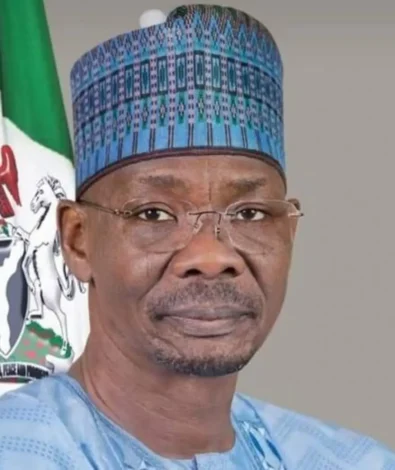Nigeria’s 36 states spent only 58% of their health budget in 2023—Report

Nigeria’s 36 states collectively spent N1.39 trillion on health in 2023, representing 58.16% of their N2.3 trillion budget for the item in the year.
This is according to the latest BudgIT’s 2024 State of States report.
This gap highlights critical funding shortfalls for essential healthcare programs, with BudgIT emphasizing the need for states to transition from simply budgeting for healthcare to actually funding the necessary services.
“The discrepancy between allocated and actual spending reveals insufficient financial support for core healthcare services, leaving gaps in areas that matter most,” BudgIT stated, urging states to increase the percentage of healthcare funds that are fully utilized rather than merely allocated.
Iniobong Usen, BudgIT’s Head of Research and Policy Advisory, discussed the findings, noting that the report digs into how states could better fund their budgets through internally generated revenues, improve human capital investments, and ensure fiscal responsibility.
“The report addresses the fiscal challenges facing Nigeria’s 36 states in balancing economic volatility, budget credibility, and the need for improved public healthcare investments,” Usen explained, speaking from Abuja on Tuesday.
Gaps and undermined healthcare standards
The report titled Moving Primary Health Care Delivery from Sub-Optimality to Optimality brings attention to significant underfunding across essential healthcare areas, notably in medical equipment and drug supplies.
- “Only N35.72 billion was spent on medical equipment, with nine states, including Edo, Ekiti, and Ogun, reporting no expenditures in this area,” the report highlights, warning that the lack of investment in critical medical equipment is impeding healthcare delivery standards nationwide.
- A consistent drug supply remains crucial for effective treatment, yet Nigeria’s states only allocated N15.31 billion to medical supplies in 2023, with states such as Delta, Ebonyi, and Niger reporting zero spending on this essential line item.
BudgIT warns, “This shortage restricts access to essential medications, endangering patients’ health outcomes and limiting treatment capacity.”
Infrastructure and workforce shortages compound service delivery challenges
Beyond funding issues, the report also pointed to the challenges of Nigeria’s healthcare infrastructure and workforce. “With 38,182 healthcare facilities across Nigeria, 74.08% government-owned the current network is struggling to meet demand.
“The average ratio of public primary healthcare facilities to the population stands at one facility per 8,960 people, a figure close to but still under WHO’s recommendation of one facility per 10,000 people.
“Bayelsa has only 202 public primary health facilities, compared to Niger State’s leading figure of 1,338,” the report highlighted.
Workforce shortages further exacerbate the problem, with Nigeria’s doctor-to-patient ratio standing at just 4 doctors per 10,000 people, a figure far below the WHO’s recommended 1 doctor per 600 people.
“States like Taraba, with a doctor-to-patient ratio of 1:17,959, and Bauchi, where only 10.9% of facilities have a general doctor, face severe bottlenecks in service delivery,” the report notes.
BudgIT’s report attributes part of this shortage to the rising “Japa” trend, where Nigerian healthcare professionals leave the country for better opportunities abroad, compounding the healthcare system’s workforce constraints.
What You Should Know
⦁ Healthcare Workforce Strain: The ongoing emigration of doctors and nurses places a significant strain on those who remain, impacting overall service delivery, as noted by BudgIT.
⦁ Infectious Disease Burden: BudgIT’s report highlights alarmingly high rates of infectious diseases in Nigeria. For instance, Borno reported over 527,000 malaria cases in 2023, contributing to the disease burden in states like Kogi, Plateau, and Ondo.
⦁ Cholera and Tuberculosis Cases: The report also points out that cases of cholera and tuberculosis remain critical, with Kaduna alone recording 32,297 TB cases, emphasizing the urgent need for strengthened disease control and prevention programs.



